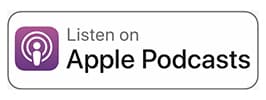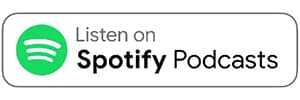Buy your first home affordably with “house hacking”
Can rental income be used to pay your mortgage? The short answer is yes. Some creative buyers use this type of “house hacking” to buy a home and get renters to cover their mortgage payments.
But you’ll need a certain type of mortgage to carry out this hack, as well as a home appraiser to determine the ballpark rent you can charge per month.
Mortgage expert Ivan Simental dove into the details on a recent episode of The Mortgage Reports Podcast. Here’s what he had to say.
Verify your home buying eligibility. Start hereListen to Ivan on The Mortgage Reports Podcast!
What is “house hacking”?
As you might know, you can get a mortgage with co-borrowers including friends, family, and people who specifically aren’t your spouse. But did you know that you could buy a home and use rent payments from future tenants to pay your mortgage?
“House hacking” is a path to homeownership few realize and even fewer take advantage of. It’s typically done through an FHA loan but Freddie Mac’s Home Possible program allows it as well. With these mortgage programs, you may be able to purchase a multi-unit property and use the potential rent from the spare units as qualifying income.
This can help you qualify for a mortgage by boosting the amount of income you claim on your mortgage application. And, once you move in, those rent payments can be used to cover part or all of your monthly mortgage payment — allowing you to live on the cheap (or for free) in a home you own.
How house hacking works
For example, let’s say you buy a 4-unit property and the three units you don’t live in have monthly rents of $1,000 each. “FHA will allow you to use up to 85% of the potential rental income to be used as qualified income on debt-to-income ratio calculations,” Simental explains.
However, this is not the same as renting out an extra bedroom to a friend and using it as qualifying income. Lenders generally don’t allow this because it is not seen as a long-term situation and therefore, wouldn’t boost your debt-to-income ratio for a substantial amount of time.
The rental unit must be a separate space with a kitchen and bathroom. Alongside the multi-unit properties outlined above, a studio above your garage or an accessory dwelling unit (ADU) would qualify.
How much can you charge renters?
Because the amount of rent you charge gets incorporated in your debt-to-income ratio and ultimately impacts your loan underwriting, it needs to be benchmarked.
Enter the home appraiser. An appraiser will objectively determine how much potential rental income you’ll have based on comparable properties in your area. The higher the rental appraisal amounts, the higher the mortgage you can qualify for.
It’s important to note that when buying these properties, you will need to have extra money in the bank. Properties with two units require a month of cash reserves — your total monthly principal, interest, taxes and insurance payment — upon purchase, while 3-4 unit properties require three months of reserves.
Advice for interested borrowers
Simental implores anyone interested in house hacking to “seriously, seriously consider it as a viable option for your first home…You 100% should really think about this.”
He said he wishes he did it when he purchased his first home — and again several times after that — because of all the money he would’ve made through renters. Using that rental income is nice because it allows you to buy more house (and eventually more houses), Simental says.
If this potential path to homeownership sounds great to you, talk to your local lender and real estate professional to get more specifics and the ball rolling. You could be hacking the housing market soon!
Time to make a move? Let us find the right mortgage for you

